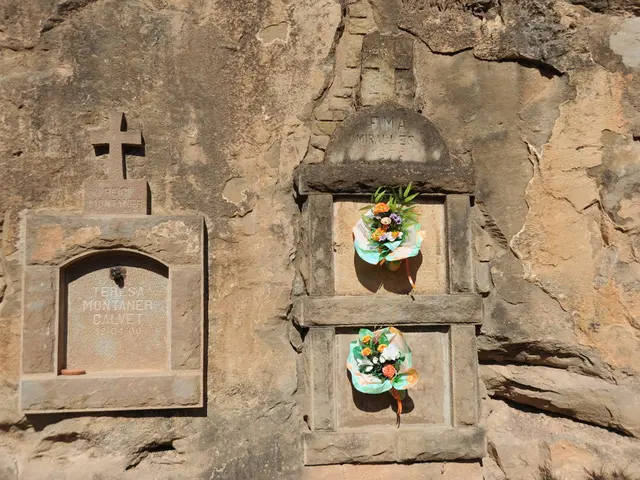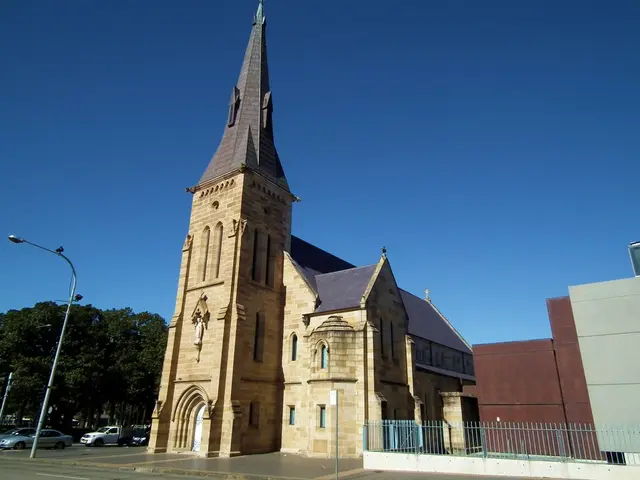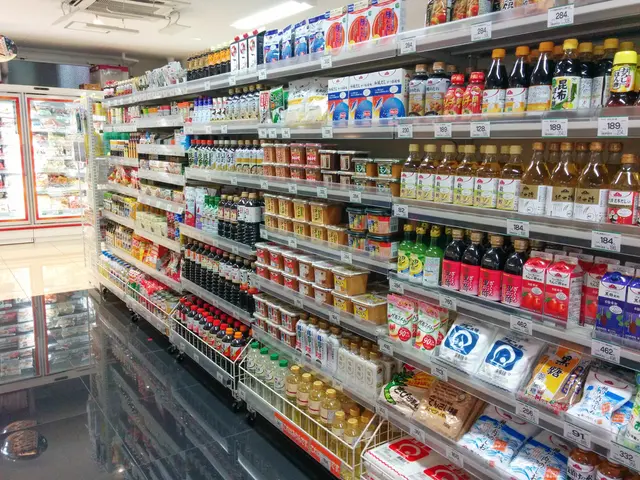A Tale of Anaklia: The Leviathan Rises?
Georgia finding itself at a strategic crossroads in global political shifts
It's the hushed whisper of an impending spectacle along Georgia's Black Sea coast. But the beaches of Anaklia, despite the warm sun shining overhead, remain silent - a ghost town of sorts. Yet, the dreams of this once-sleepy coastal settlement have been stirring, with tales of billion-dollar projects and geopolitical significance.
A port in Anaklia? That's the word on the street, but for many, it's just a tale spun into the wind. After decades of promises like a lullaby, tangible results have yet to appear. Yet, rumors persist that this sleepy town could soon be the epicenter of a geopolitical pivot, much like the leviathan stirring beneath the waves.
One may argue that dreams of grandiose achievement reside here. Empty villas, remnants of beach bars, and an array of half-finished structures scattered about tell a tale of unfulfilled ambitions. The ironically named Golden Fleece Hotel, a once magnificent beachfront landmark, is swiftly being reclaimed by nature, ferns springing up in its once-impressive plaza.
Anaklia's true value lies hidden beneath the waves, in the strategic significance of its deep canyon that slices through the seabed. The notion first captured the attention of Soviet officials in the 1960s, leading to plans to build a port in the area back in the late 1980s. However, the project never took off before the Soviet Union's collapse in 1991.
The idea lay dormant until Mikhail Saakashvili took the reins as head of the United National Movement in 2003. Locals credit him with shaping the dramatic waterfront silhouette that now greets visitors. Constructing along the coast was all part of Saakashvili's vision for an integrated "Lazika" complex - a harmonious blend of a modern port and resort city.
Much like waves crashing against a shoreline, the tides of political power ebbed and flowed, and the Saakashvili blueprint was discarded when Georgian Dream took power in 2012. In 2015, the project was revived under the leadership of an alliance of American and European companies known as the Anaklia Development Consortium (ADC). The ADC had the tide in their favor, making significant strides towards making the port a reality.
The ADC brought in private investors, cleared 110 hectares of land, and created a "Special Economic Zone." Yet, their contract was canceled in 2019, with officials citing unmet deadlines. Yet, critics believe politics may have played a role in the decision, as the project became increasingly politicized.
Just over a month ago, it seemed as if the tides had turned once more, with a consortium of Chinese companies officially reviving the Anaklia port project. Georgian officials proclaim that the project will connect Georgia to the East-West trade route, bringing immense economic benefits. Yet, skepticism remains, and whispers of ulterior motives are not unheard of.
One such voice belongs to Miro Popkhadze, the Georgian Ministry of Defense's former representative to the United Nations and an expert on security in the Black Sea region. He suggests that the deal may foster cooperation between China and Russia to push Western influence from the region - and, in particular, from Georgia.
For many locals, though, the reasons for concern are rooted in perceptions of Chinese business practices. The ADC had promised to create 2,300 jobs for Georgians in the first phase of the project alone, but Chinese companies are often criticized for relying on their own workforce to build and manage new developments.
Yet, the future of Anaklia remains uncertain, as the project faces potential obstacles in the coming months. The decision of the International Court of Arbitration on the complaint filed by the ADC is yet to come, and pending elections in October could see a change in government policies. And as neighbouring countries watch their own economic and political interests at stake, the leviathan rises and wakes once more.
In the Wake of the Leviathan: A Glimpse at the Present and Future Implications
The Anaklia port project, if successfully completed, could have ripple effects throughout the region. It would solidify Georgia's role in regional trade, enhancing its connections with Western Europe and Central Asia. The consequences of this shift could significantly impact regional geopolitics, potentially deepening tensions with Western partners if Chinese influence continues to expand.
However, the project's success would also represent opportunities for economic growth, increased regional connectivity, and enhanced trade volumes, benefiting Georgia and its neighbors in the long term. Infrastructure expansion beyond the port is also a possibility, with the potential development of ports like Poti and the Vaziani airport.
This volatile mix of challenges and opportunities calls for careful navigation, as nations tread the waters of global politics.
- Despite the ongoing political speculation surrounding the Anaklia port project, its potential completion could significantly influence regional food trade, as it would improve Georgia's connections with Western Europe and Central Asia.
- As the Anaklia port project is closely connected to the broader business domain, any moves by Chinese companies to increase their presence could potentially result in an employment shift, with Chinese workers being preferred over locals.
- The rise of the Anaklia project, likened to a leviathan stirring beneath the waves, not only holds geopolitical implications but also presents a general news story that sparks debates about the balance of power in the region and potential economic benefits or drawbacks for both Georgia and its neighboring countries.








